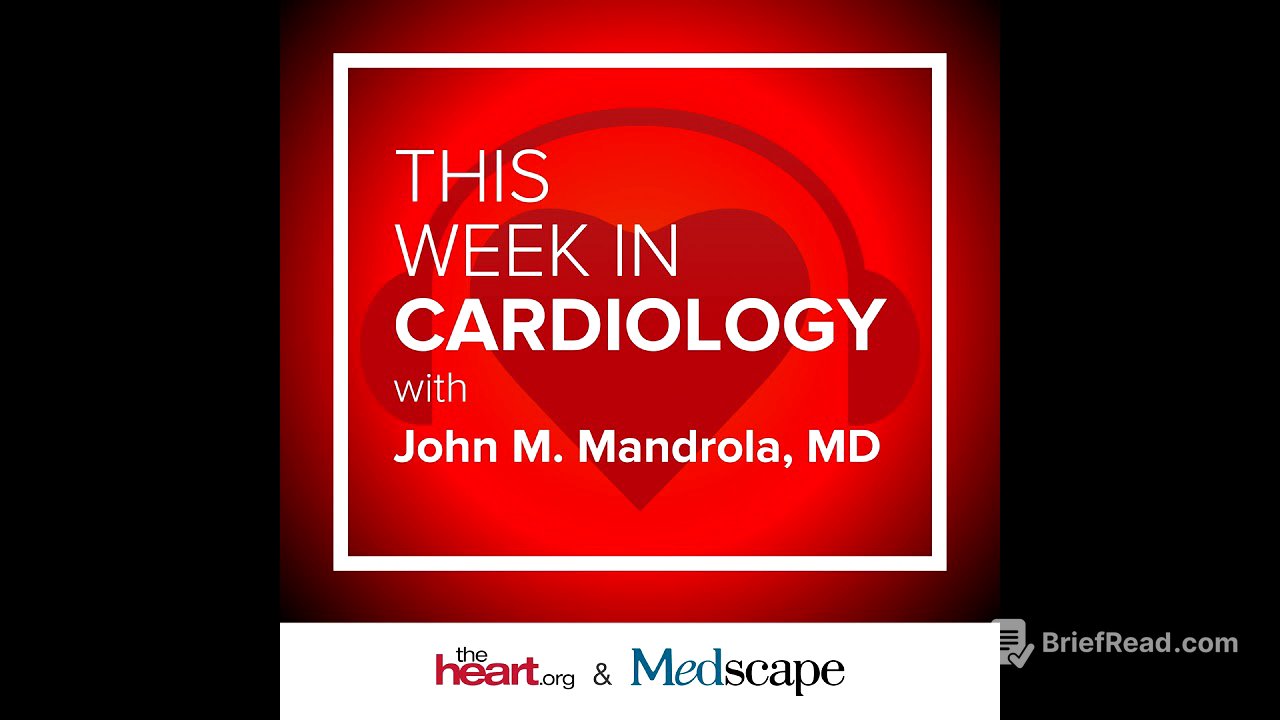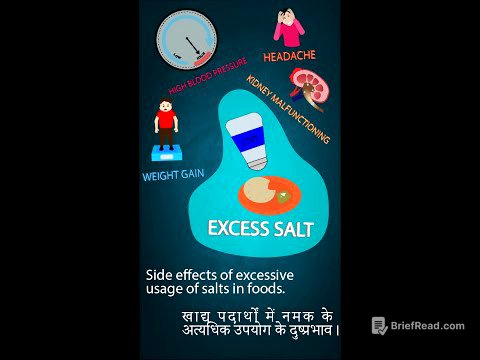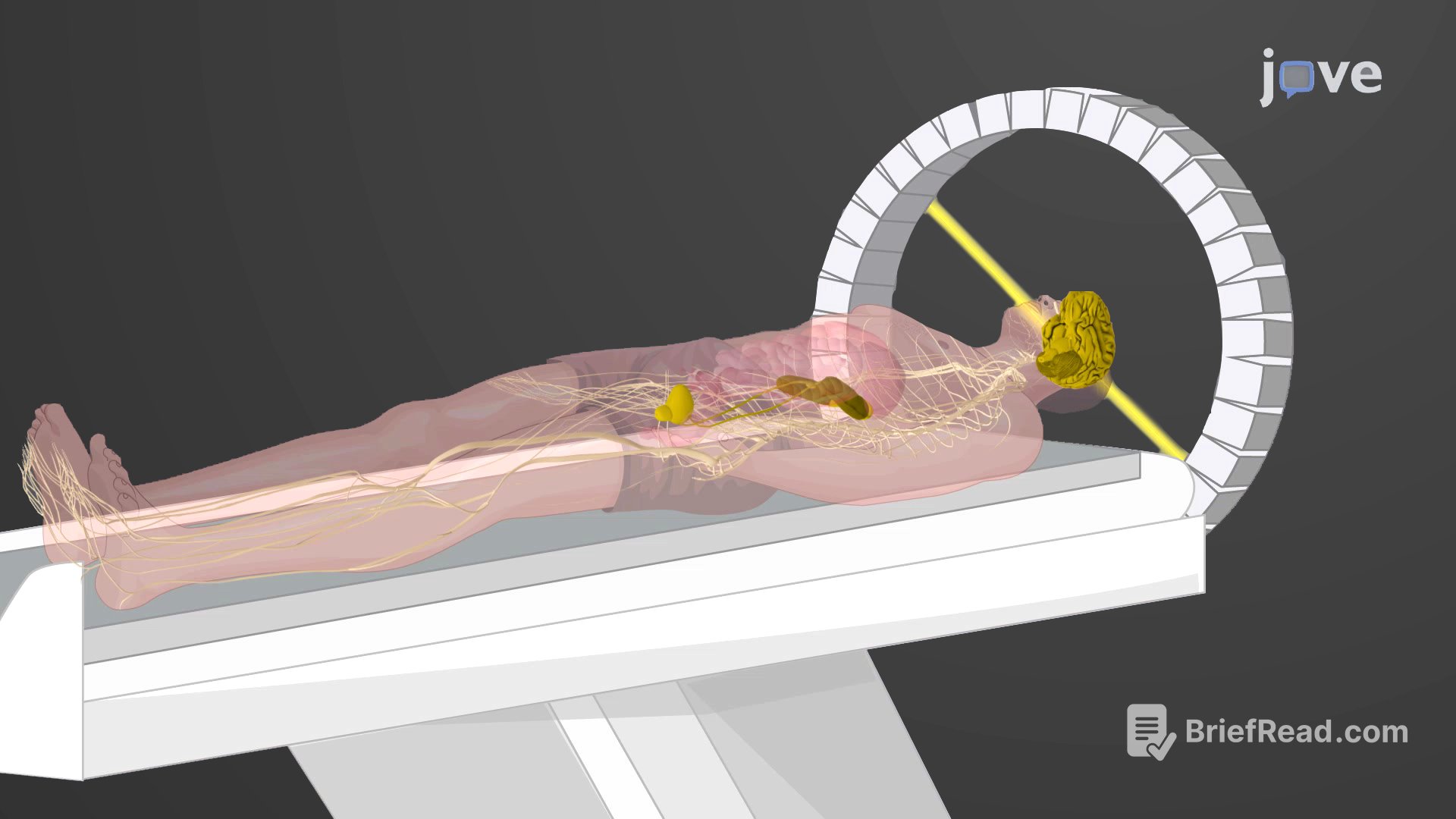TLDR;
This podcast episode of "This Week in Cardiology" covers several key topics: new hypertension guidelines, the impact of ultra-processed foods on cardio-metabolic health, the use of coronary sinus reducers for refractory angina, and the continued positive outlook on pulsed field ablation (PFA) for atrial fibrillation (AF) ablation. The discussion includes critical analyses of recent studies and guidelines, emphasizing the importance of evidence-based medicine and careful interpretation of clinical data.
- New hypertension guidelines emphasize proper blood pressure measurement and the use of the PREVENT score for risk assessment.
- Ultra-processed foods contribute significantly to poor cardio-metabolic health, especially among children.
- Meta-analysis reveals the coronary sinus reducer's effectiveness may be overstated due to a lack of proper placebo controls in studies.
- Recent data supports the benefits of PFA for AF ablation, potentially allowing for shorter durations of anticoagulation.
Introduction [0:00]
John Mandola introduces the topics for this week's cardiology update, which include new hypertension guidelines, ultra-processed foods, coronary sinus reduction, evidence-based medicine, and positive news regarding pulsed field ablation (PFA) for atrial fibrillation (AF) ablation.
New Hypertension Guidelines [0:43]
New AHA hypertension guidelines emphasize the importance of proper blood pressure measurement techniques, such as ensuring feet are on the floor and the arm is supported. The guidelines caution against cuffless blood pressure devices and highlight common causes of secondary hypertension, including primary aldosteronism and obstructive sleep apnea, recommending referral to specialists. Lifestyle interventions for hypertension prevention are also addressed, focusing on diet, exercise, and sleep. A significant change involves using the PREVENT score for cardiovascular disease risk estimation, influencing treatment thresholds. For blood pressure readings of 140/90 or higher, therapy is recommended regardless of comorbidities, while readings of 130/80 require consideration of cardiovascular disease, diabetes, CKD, or a PREVENT score above 7.5%. The treatment goal is generally below 130/80, with a push towards less than 120 systolic when the PREVENT score is high. Combination pills with two first-line medications are recommended for patients with stage 2 hypertension to improve adherence. The guidelines also address blood pressure management in specific conditions like stroke, intracranial hemorrhage, and pregnancy.
Resistant Hypertension and Renal Denervation [8:45]
The guidelines provide a sober assessment of renal denervation for resistant hypertension, advising confirmation of resistance and close monitoring of drug adherence. Mineralocorticoid receptor antagonists are recommended, with amiloride as an alternative if poorly tolerated. Finerenone is mentioned as a potential option when other treatments fail. The guidelines express caution regarding renal denervation, citing modest blood pressure lowering effects and a lack of cardiovascular outcome trials, advising it should not be considered a curative therapy. There are concerns that the "intolerable" label for medications could lead to overuse of renal denervation, similar to issues seen with left atrial appendage occlusion.
Ultra-Processed Foods and Cardio-Metabolic Health [12:08]
The AHA has released a scientific statement on ultra-processed foods and their association with cardio-metabolic health. Cardio-metabolic health in the U.S. is a significant public health crisis, particularly affecting children in lower socioeconomic levels. Snack foods are easily accessible and inexpensive but lack nutritional value. Many of these foods are ultra-processed and contain artificial dyes. The lack of regular physical activity in schools exacerbates the problem. Addressing excess calorie intake and promoting exercise are crucial steps in tackling this crisis.
Coronary Sinus Reducer and Evidence-Based Medicine [14:28]
The coronary sinus reducer, a device not approved in the U.S., is designed to relieve refractory angina by narrowing the coronary sinus and redistributing blood flow. A meta-analysis of studies on coronary sinus reduction reveals that single-arm, unblinded studies show much larger effects on angina reduction compared to sham-controlled trials. The analysis highlights the importance of placebo controls in interventional studies, as non-controlled studies may overstate the device's effectiveness due to contextual effects. A larger RCT, Corsera 2, is underway to further evaluate the true effect size of the procedure.
Pulsed Field Ablation (PFA) for AF Ablation [19:06]
Recent studies continue to show positive results for PFA in AF ablation, with similar efficacy and safety compared to thermal ablation. A non-randomized study comparing anticoagulation after thermal and PFA ablation found zero strokes in patients who stopped anticoagulation one month after PFA, compared to 16 strokes in the RF group. AF recurrences were also lower in the PFA group. These findings suggest that PFA may result in less inflammation and endothelial disruption than RF ablation, potentially allowing for shorter durations of anticoagulation. However, these observations require further confirmation.









